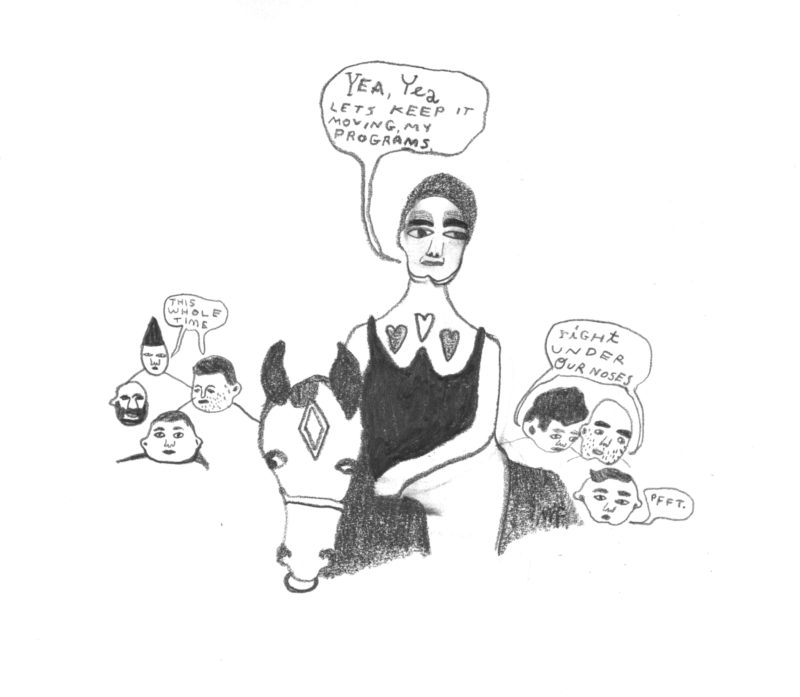after A Sudden Gust of Wind (after Hokusai) by Jeff Wall
Forget about Hokusai for a minute: in this photograph,
the bend of the tree is a replica of the bend
of the river. A woman loses her headscarf.
A businessman and a farmer crouch into
the wind. Looseleaf whipped from
a briefcase whirls upward, tangles
with clouds. No sixteenth-century rice field:
This is a cranberry farm outside
Vancouver, and lurching into the gust
are actors. A digital composite made
of one hundred photographs taken over a year. Nothing
can substitute the single brushstroke of
Fuji, so there’s no mountain.
Now, lift a corner and let fly
the part of you that can’t help
but destroy things. Disrupt
the tableau with a minor catastrophe
and watch the players in the drama clutch
at hats, some semblance of
the original: peasants winding through
dry grass, tissues drawn
from a kimono pocket flying skyward.
What did the woman say to the cloud?
You’re the doughy center to this storm.
The grass whispers rice
is nice rice is nice. Heart and mind
agree on one thing: When seeking a pattern, subvert
the pattern. Ancient Indonesian temple-makers always
turned one stone’s marking in the opposite
direction. Nothing’s perfect is what
the stars declared, and Borobudur
is circumambulated to this day. This poem
is spliced together from a hundred thoughts, most likely
a modern version of some old idea.
Like the man whose toupée is whipped off, we need to
get over ourselves. Let the wind separate us
from our belongings. Walk empty-minded
into the cranberries and rainwater. Look how
the rectangles of paper become sky! It makes sense now
why the mountain’s not there. Irreplaceable
we say to our disoriented selves, this landscape backdrop.





